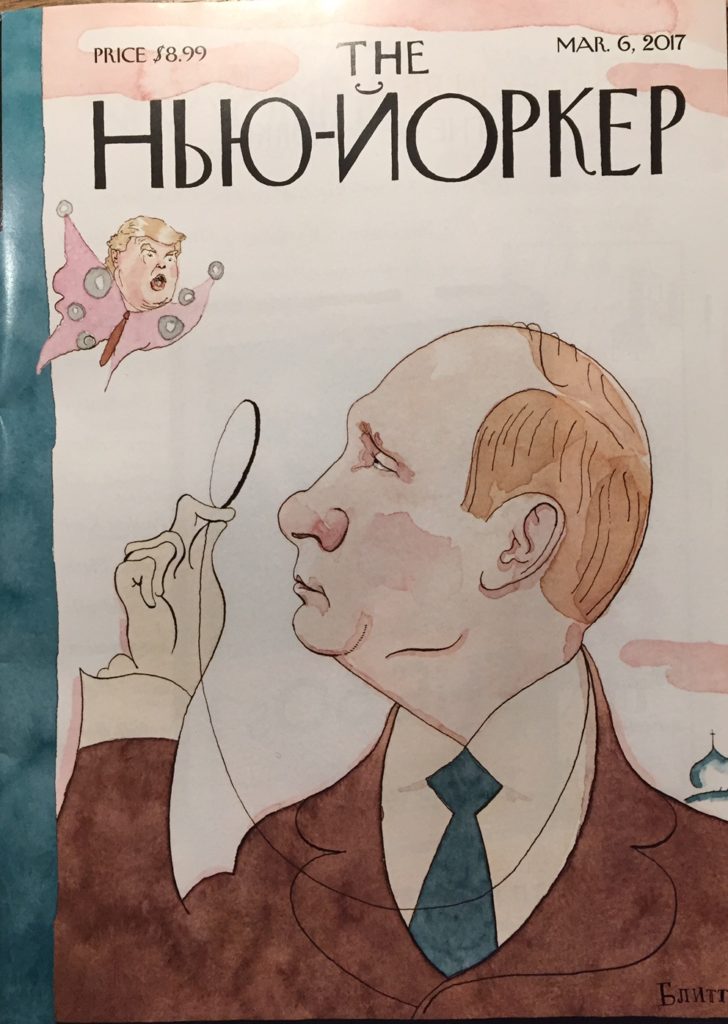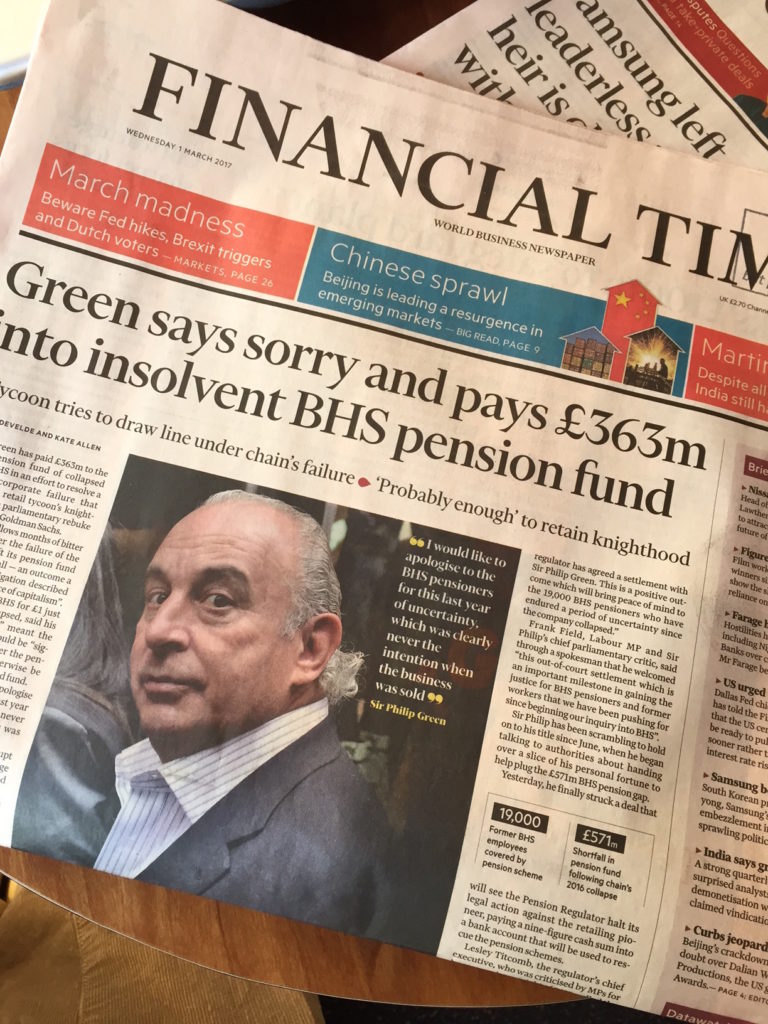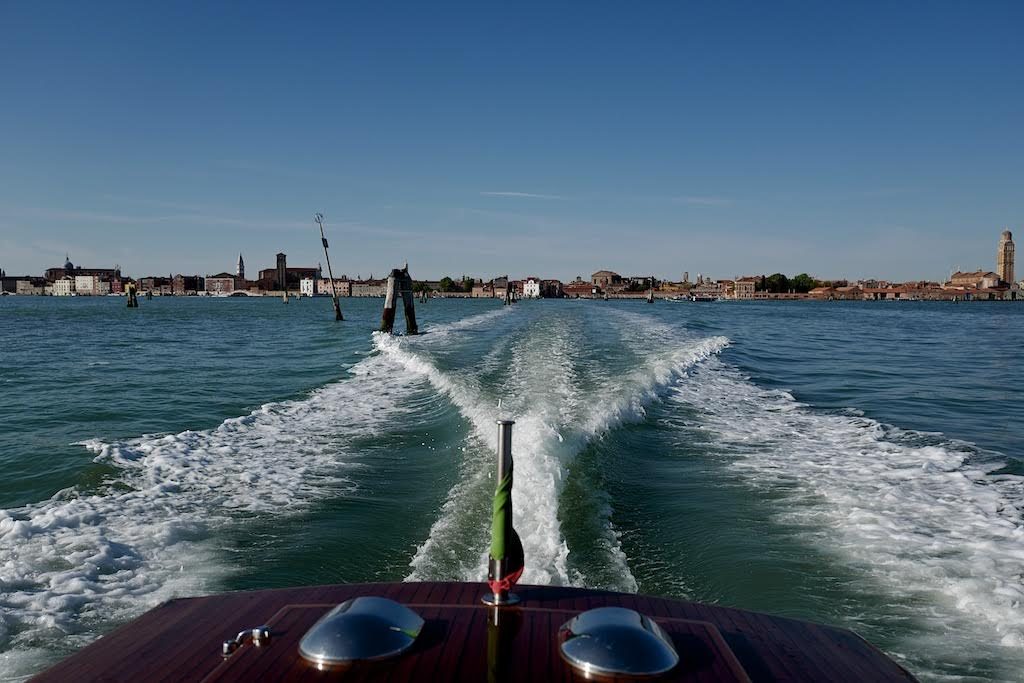Category Archives: Asides
I’m a student – don’t stress me out
Lovely passage in David French’s review of Tyler Cowen’s new book — The Complacent Class:
This weekend, my wife and oldest daughter visited her first-choice college, the University of Tennessee. There was one curious moment in an otherwise wonderful weekend. The tour guide noted that the university was there to help students get through the trauma of exams. It brought in masseuses to massage away the stress. It rolls out a sheet of paper, passes out crayons, and lets the students express their rage against algebra. Oh, and it vowed to bring in puppies, so students could cuddle something cute to take the edge off their anxiety.
Knighthood prices buoyant: now £363m/K
Politeness, not willpower.
From an essay on disconnecting by Philip Reid:
Of course, it’s true that cellphones can be used responsibly. We can shut them off or simply ignore the incoming text. But this takes extraordinary willpower. According to a recent Pew survey, 82% of Americans believe that cellphone use in social situations more often hurts than helps conversation, yet 89% of cell owners still use their phones in those situations.
Not me, though. Which is why people who are trying to get in touch with me during the day sometimes find me infuriating. I very rarely take a call or reply to a text when I’m with people. It’s not so much a matter of high principle: I just think it’s incredibly rude to privilege a device over another human being.
Kenneth Arrow, RIP
The great economist has passed away, at the age of 95. I liked this story from the NYT obituary:
Professor Arrow was widely hailed as a polymath, possessing prodigious knowledge of subjects far removed from economics. Eric Maskin, a Harvard economist and fellow Nobel winner, told of a good-natured conspiracy waged by junior faculty to get the better of Professor Arrow, even if artificially. They all agreed to study the breeding habits of gray whales — a suitably abstruse topic — and gathered at an appointed date at a place where Professor Arrow would be sure to visit.
When, as expected, he showed up, they were talking out loud about the theory by a marine biologist — last name, Turner — which purported to explain how gray whales found the same breeding spot year after year. As Professor Maskin recounted the story, “Ken was silent,” and his junior colleagues amused themselves that they had for once bested their formidable professor.
Well, not so fast.
Before leaving, Professor Arrow muttered, “But I thought that Turner’s theory was entirely discredited by Spencer, who showed that the hypothesized homing mechanism couldn’t possibly work.”
Tim Wu: ‘The internet is like the classic story of the party that went sour’
My Observer piece about Tim Wu’s new book, plus an email exchange between him and me.
Tim Wu is a law professor at Columbia University. His specialities include competition, copyright and telecommunications law. So far, so conventional. But Wu is an unconventional academic. For one thing, he ran for the Democratic nomination for lieutenant governorship of New York (and won 40% of the popular vote, though not the primary election). For another, he served for a time in the office of New York’s attorney general, specialising in issues involving technology, consumer protection and ensuring fair competition among online companies. “If I have a life mission,” he said once, “it is to fight bullies. I like standing up for the little guy and I think that’s what the state attorney general’s office does.”
Sign up to the new-look Media Briefing: bigger, better, brighter
Read moreAs I said, no ordinary academic. But it gets better. Wu is also the guy who coined the phrase “net neutrality”, which has turned out to be a key concept in debates about regulation of the internet. He was for a time a senior adviser to the Federal Trade Commission, America’s main consumer protection agency. And somehow, in the middle of all this activity, he writes books that make a big impact.
The cue for his new book, The Attention Merchants, is an observation the Nobel prize-winning economist Herbert Simon made in 1971. “In an information-rich world,” Simon wrote, “the wealth of information means a dearth of something else: a scarcity of whatever it is that information consumes. What information consumes is rather obvious: it consumes the attention of its recipients. Hence a wealth of information creates a poverty of attention and a need to allocate that attention efficiently among the overabundance of information sources that might consume it.”
Backward into the future
From Gideon Lichfield of Quartz:
Yes, there have been far worse years in history. Yes, it’s in our (and the media’s) nature to give too much weight to bad, short-term news. Sure, you can take solace in the vast longer-term strides humanity has made, or in devil-may-care existential nihilism, or in hopeful bromides—the arc of the moral universe, yadda yadda. Choose your flavor of forced optimism, and indulge in it all you want. By any objective measure, this has still been an awful year.
It’s not just because of Aleppo, Nice, Brussels, Orlando, and other milestones in carnage. Nor because of the rise of Trump, Farage, Le Pen, Fillon, Duterte, and other merchants of hatred. Nor because free trade and movement are on the retreat. Nor even because a newly isolationist US, resurgent Russia, and aggressive China are about to take the world’s geopolitical balance and shake it like a snow-globe.
No: It’s also because this has been the year of post-truth, when the combined effects of polarizing social media, weakening traditional media, shameless politicians, and economic and political tribalism reached their logical destination. In countries whose systems of governance were premised on at least a veneer of reasoned debate about mutually agreed-on facts, the scope for such debate is shrinking fast. This is fundamental. Don’t like the way the world is going? Want to change it? How do you convince people if they won’t even hear you?
So yes; things are bad, and it’s foolish to pretend otherwise. But it’s equally foolish to wallow in despair.
Well, I agree with that last sentence anyway.
We’re in a new era, folks. And not just because of Trump.
From the New York Times of December 9:
WASHINGTON — American intelligence agencies have concluded with “high confidence” that Russia acted covertly in the latter stages of the presidential campaign to harm Hillary Clinton’s chances and promote Donald J. Trump, according to senior administration officials.
They based that conclusion, in part, on another finding — which they say was also reached with high confidence — that the Russians hacked the Republican National Committee’s computer systems in addition to their attacks on Democratic organizations, but did not release whatever information they gleaned from the Republican networks.
In the months before the election, it was largely documents from Democratic Party systems that were leaked to the public. Intelligence agencies have concluded that the Russians gave the Democrats’ documents to WikiLeaks.
The Republicans, naturally, deny that their networks were hacked. To which the answer is: how would they know?
This story merely confirms what we have intuited for ages, namely that Russian investment in the disruptive potential of the Internet (as part of the ‘Gerasimov Doctrine’) is now beginning to pay off.
Wodehouse comes home
“Into the face of the young man … who sat on the terrace of the Hotel Magnifique at Cannes there had crept a look of furtive shame, the shifty hangdog look which announces that an Englishman is about to speak French.”
Thus P.G. Wodehouse in The Luck of the Bodkins — one of the quotations in the Observer‘s scoop that the great man’s archive is coming to the British Museum. Hooray!
That sinking feeling
According to Jennifer Senior, reviewing Salvatore Settis’s If Venice Dies in the New York Times, Venice
“had 174,808 inhabitants in 1951. By 2015, the number had dropped to 56,072. That’s about 2,000 fewer residents than Venice had in the aftermath of the plague of 1348. Maybe the ancient records can’t be trusted. But you get the idea.”
I do. Better book that holiday now.
.



